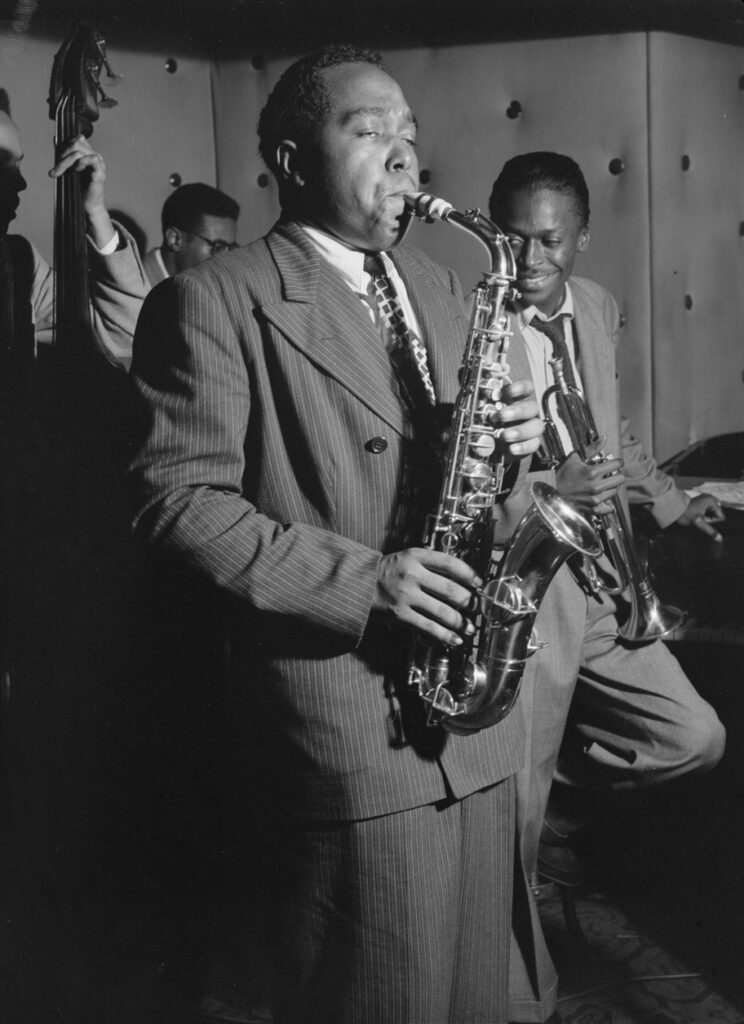Charlie Parker: The Revolutionary Voice of Bebop
Charlie Parker, also known as “Bird” or “Yardbird,” stands as one of the most transformative figures in American music. Though often celebrated within the jazz idiom, Parker’s artistry left an indelible impact that transcended genres—including blues, where his phrasing, soulfulness, and improvisational genius echoed the spirit of the Delta. His musical innovations forever changed the landscape of 20th-century music, placing him among the true pioneers of modern sound.

Early Life and Musical Roots
Charles Parker Jr. was born on August 29, 1920, in Kansas City, Kansas, and raised in Kansas City, Missouri—a city that was alive with the sounds of swing, blues, and early jazz. The vibrant Kansas City jazz scene of the 1930s served as fertile ground for Parker’s growth, and by age 11, he began playing the saxophone. Despite dropping out of school at 15, Parker’s dedication to music was relentless. He practiced obsessively, often up to 15 hours a day.
Though he is chiefly remembered as a jazz revolutionary, Parker’s playing was deeply rooted in the blues. Many of his solos are shaped by the blues scale, and his emotional phrasing bears unmistakable blues inflection. The blues was not just a style for Parker—it was a language that permeated his art.
The Birth of Bebop
In the early 1940s, Parker moved to New York City, where he joined forces with other innovative musicians such as Dizzy Gillespie, Thelonious Monk, and Max Roach. Together, they developed a bold new style of jazz: bebop. This music broke away from the dance-oriented swing tradition, favoring blistering tempos, complex harmonies, and virtuosic improvisation.
Parker’s soloing style was unmatched. His ability to construct intricate melodic lines with emotional clarity was unprecedented. He redefined what the saxophone could do and set a new standard for improvisers in every genre—including blues. In fact, many blues musicians were influenced by Parker’s phrasing, technical brilliance, and use of chromaticism.
Key Recordings and Influence on Blues
Some of Parker’s most iconic recordings reflect his love for the blues:
- “Parker’s Mood” – A soulful blues in B♭ that captures raw emotion and sophistication in equal measure.
- “Now’s the Time” – A riff-based blues that later inspired rock and R&B musicians.
- “Cool Blues” – A fast-paced bebop take on the traditional 12-bar form.
These pieces showcased Parker’s ability to blend traditional blues elements with cutting-edge harmonic innovation. His style influenced generations of musicians beyond jazz, including B.B. King, Ray Charles, and Jimi Hendrix, all of whom acknowledged the importance of Parker’s emotional depth and melodic ideas.
Struggles and Personal Life
Behind Parker’s genius was a life marked by personal struggle. He battled addiction for much of his adult life, beginning with a morphine dependency after a car accident as a teenager. This led to years of heroin abuse, which affected both his personal relationships and professional commitments.
Despite these difficulties, Parker remained a magnetic presence in the music world. He married several times and had children, though his personal life was often turbulent. Still, his music remained his refuge and his gift to the world.
Death and Legacy
Charlie Parker died on March 12, 1955, at the tragically young age of 34, in New York City. His death was attributed to a combination of pneumonia, cirrhosis, and complications related to drug use. Doctors were shocked by the state of his body—he was so physically deteriorated that they initially estimated his age to be 55.
Yet in those brief years, Parker accomplished what few musicians ever achieve in a lifetime. He revolutionized jazz, elevated the blues idiom, and inspired a new way of thinking about music. Today, his recordings are studied around the world, and his nickname—”Bird”—has become synonymous with musical freedom and genius.
Charlie Parker and the Blues: A Lasting Bond
Though Charlie Parker is often hailed as the father of bebop, his connection to the blues was never severed. He infused his music with the blues’ emotional resonance, and he often returned to the 12-bar form as a canvas for innovation. In doing so, he reminded the world that the blues—simple, heartfelt, and powerful—could be the foundation for the most sophisticated forms of expression.
Whether through the raw lament of “Parker’s Mood” or the joyful licks of “Now’s the Time,” Bird sang the blues in a way no one else ever had. And that voice continues to inspire, echoing through every saxophone cry, guitar solo, and impassioned lyric born from the blues tradition.
Conclusion
Charlie Parker’s life was a whirlwind of brilliance and struggle, innovation and tradition. While his name is often written in the annals of jazz history, his influence on the blues is profound and lasting. For musicians and listeners alike, Parker represents the perfect fusion of intellect and emotion—proof that the most complex music can still speak from the soul.

Comments are closed